Osteoporosis and the Menopause

The menopause and osteoporosis: bone health
If you’re going through the menopause, you’ll probably have a few concerns about all the changes your body is experiencing. One particular question that often comes up is about osteoporosis. But why do people link it to the menopause and what exactly is osteoporosis?
What is osteoporosis?
Osteoporosis literally means ‘porous bone’ and is a condition when extreme bone density loss occurs, which can increase the chances of a fracture or break. Oestrogen plays a major part in making sure the female skeleton is working properly, maintaining the strength of the bones and their resistance to breaks and fractures. So when the levels start to drop, this can affect bone mass.
How will I know if I have osteoporosis or if I am at risk?
It’s tricky to know if you are prone to osteoporosis as there are no obvious symptoms. That’s why it’s often called a ‘silent disease’ and you may only find out you have weaker bones if you have a bump, strain or fall that causes a fracture. However, the menopause is a good time to assess your lifestyle and take on a healthy and bone-friendly lifestyle to prevent this happening.
Can the menopause cause osteoporosis?
Because oestrogen levels drop during perimenopause and menopause, it means it is no longer present in the body to help protect bone strength. However, although your bone density decreases, the risk of osteoporosis stays fairly low if you are practicing a lifestyle that includes the suggestions below.
How can I prevent getting osteoporosis?
Fortunately there are lots of things to keep your bones healthy during and after the menopause:
Stay active through regular exercise: This could be cycling or walking or you might like to try some strengthening at the gym or try a dancing or aerobics class. Whatever makes your feel good.
Eat a healthy, plant-centric diet: Make sure to eat wholesome, plant based foods as these are rich in phytoestrogen, calcium and Vitamin D in your diet, which are all proven to help maintain strong bones.
Although dairy has been a traditional source of calcium, in more recent years, it has been shown to actually leach calcium from the bones and contribute to osteoporosis.
There are plenty of other sources, such as sesame seeds, chia seeds, flax seeds, all green leafy vegetables, nuts, and dried fruit such as figs and dates.
Spend some time in the sun: You can help build up your body’s supply of Vitamin D by spending some time outdoors in the sunlight. Take extra care not to let your skin burn.
Lifestyle: Eating and drinking sensibly and not smoking have all been shown to help protect your bones.
It’s often a good idea to speak to your GP if you are worried about your bone health, or if you suffer from severe pain. They will be able to offer bone-density tests, assess your risk of osteoporosis and advise on appropriate types of bone-strengthening treatment if required.
Disclaimer:
Become™️ has a wonderful team of experts who all helped in the writing of this content. The opinions expressed within this page are the opinions of many people we asked, and from information we researched online. Become™️ is not responsible for the accuracy, completeness, suitability, or validity of any information on this page. All information is provided on an as-is basis.



